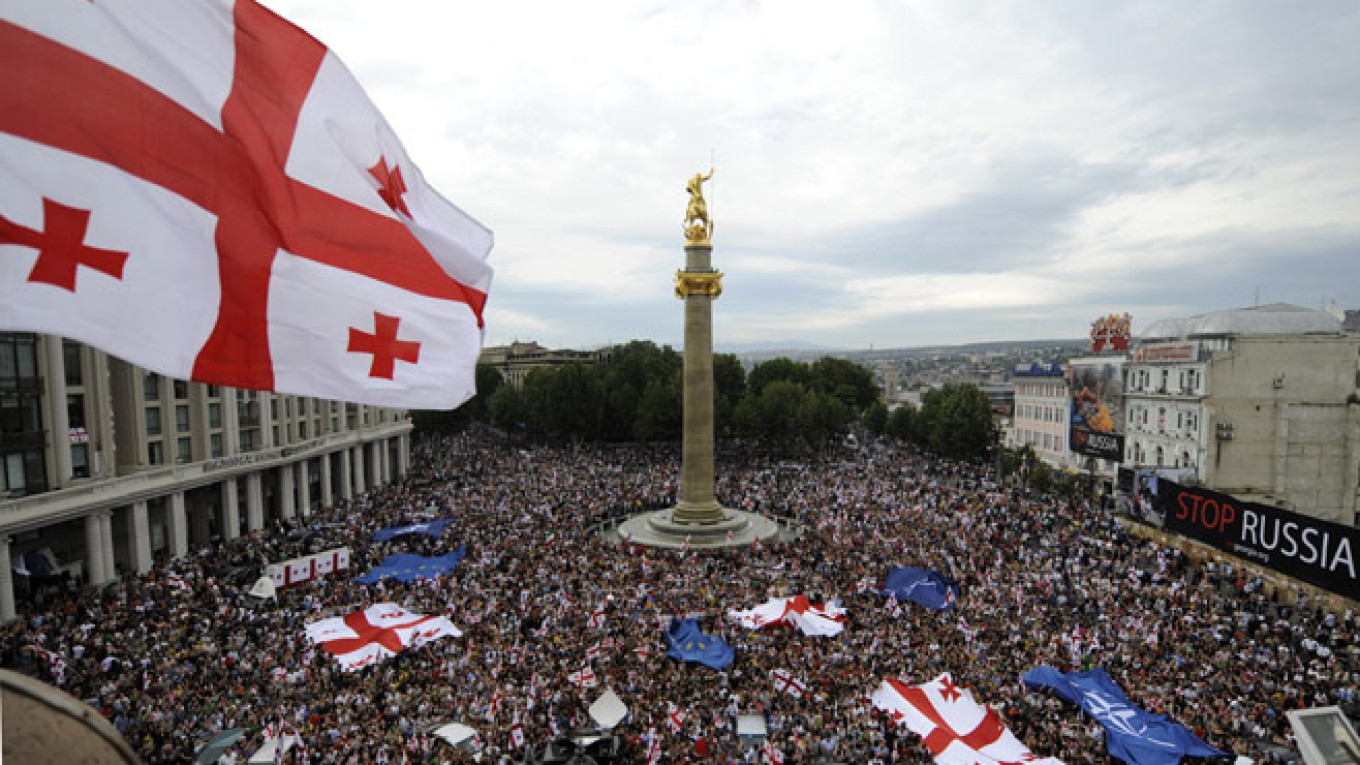Russia violated human rights when it followed a policy of detaining and expelling Georgian nationals in 2006, the European Court of Human Rights ruled Thursday.
The court held that Russia violated several of its obligations under the European Convention of Human Rights, though not all of neighboring Georgia's complaints were upheld. A decision on how much money Russia should pay in damages is pending.
Between September 2006 and January 2007, Russia ordered the expulsion of 4,634 Georgian nationals. Although many of them left after receiving orders, 2,380 were tracked down, detained and forcibly expelled, according to court filings submitted by the Georgian government.
While between 80 and 100 Georgian nationals had been expelled each month during the summer of 2006, the average leapt that fall to between 700 and 800 expulsions per month. Georgia believes that the expulsions were a deliberate policy to exact revenge for the arrests of four Russian officers and 11 Georgian citizens in Tbilisi on suspicion of espionage in September 2006. The following month, the officers were granted clemency and released.
Russia denied that there was any anti-Georgian policy, and said the expulsions were simply part of Russia's ongoing efforts to combat illegal immigration.
Georgia introduced as evidence an order apparently instructing St. Petersburg police and the Russian Interior Ministry to identify as many Georgians as possible with the aim of tracking down and deporting illegal aliens. The Russian side said that the order was a fake, but that documentary evidence to back up its rebuttal had been classified as a state secret and could not be produced.
Other evidence presented by Georgia included letters issued by Moscow authorities asking local schools to identify Georgian students in order to ensure "public order and respect for the law, preventing terrorist acts and tensions between children living in Moscow and children of Georgian nationality." ?
Russia said that those letters had been ordered by "over-zealous officials" who had since been reprimanded, according to court documents.
Russian-Georgian relations collapsed further in 2008 when the two neighbors fought a brief war over Georgia's breakaway territory of South Ossetia. Russia subsequently recognized it and another breakaway Georgian territory, Abkhazia, as independent countries and continues to prop them up economically.
See also:
A Message from The Moscow Times:
Dear readers,
We are facing unprecedented challenges. Russia's Prosecutor General's Office has designated The Moscow Times as an "undesirable" organization, criminalizing our work and putting our staff at risk of prosecution. This follows our earlier unjust labeling as a "foreign agent."
These actions are direct attempts to silence independent journalism in Russia. The authorities claim our work "discredits the decisions of the Russian leadership." We see things differently: we strive to provide accurate, unbiased reporting on Russia.
We, the journalists of The Moscow Times, refuse to be silenced. But to continue our work, we need your help.
Your support, no matter how small, makes a world of difference. If you can, please support us monthly starting from just $2. It's quick to set up, and every contribution makes a significant impact.
By supporting The Moscow Times, you're defending open, independent journalism in the face of repression. Thank you for standing with us.
Remind me later.


